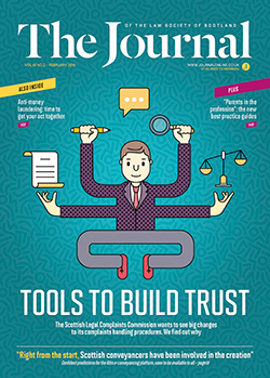Directors: the parent over your shoulder
Last year, in Central Bank of Ecuador v Conticorp SA [2015] UKPC 11, a parent company was found liable for dishonestly assisting in a breach of fiduciary duty by the nominee director of its subsidiary. The nominee director in this case simply followed its parent company’s instructions rather than exercising his independent judgment as to what was in the best interests of the subsidiary.
Whilst international corporates commonly use offshore holding entities as part of their group structures, this case demonstrates that care needs to be taken to ensure that any such offshore companies are managed as independent legal entities by their directors. Otherwise, if the parent company exercises too much control over a subsidiary, the directors and the parent company are at risk of being held liable for breaching their fiduciary duties to the subsidiary (in the case of directors), or facilitating that breach (in the case of the parent company). As such, companies and directors should consider the following matters in order to mitigate these risks:
- Directors of subsidiary companies should not be given anything by the parent company that could be perceived as an instruction or an ultimatum. Essentially, subsidiary directors must be allowed to exercise their independent judgment as to what is in the best interests of the subsidiary.
- Parent and subsidiary companies should take particular care when dealing in areas where regulators and courts have the power to impose liability on the parent company. Examples of such areas include environmental damage, health and safety, anti-competitive practices, bribery and defined benefit pension schemes.
- If a director finds himself in a situation where their duties to the subsidiary conflict with their duties to another entity or their own personal interests, they should not participate in any related board decisions – notwithstanding that the subsidiary company’s constitution may permit them to do so.
- A potential director should take independent legal advice from lawyers in the jurisdiction in which the subsidiary company is incorporated. Advice should be taken on directors’ duties in that jurisdiction, whether directors/officers insurance can be purchased, and the potential methods which could be implemented to limit their liability.
- A director should ensure that they have access to enough information about the business and the financial position of the subsidiary company in order to enable them to make an informed decision about its best interests.
- On key decisions, directors should document in board minutes the main factors they considered and the reasons why a course of action was believed to be in the best interests of the company.
- If there are any doubts, the directors should require the company’s shareholders to approve the relevant action/decision as well. Whilst it will not completely absolve the directors from any liability, it would at least help mitigate any such liability, particularly if the subsidiary is solvent at the time the approval was given.
- The director should not refer to themselves as a "nominee" director, as this could imply that their decision making is based solely on the directions of their appointer. That in turn could encourage a third party (such as a liquidator) to claim for breach of duty.
That said however, the interests of both the parent and the subsidiary will often be aligned for so long as they remain solvent. Therefore, in most cases, subsidiary directors will be able to comply with the wishes of the parent company without breaching their duties to the subsidiary.
The risks of any breach tend to be greater when the parent company either (i) significantly interferes in management decisions of the subsidiary; or (ii) pressurises the subsidiary directors to act in a manner that is not in the best interests of the subsidiary. It would therefore be recommended that all parties take advice and identify any potential risks at the outset and to review any such risks periodically.
In this issue
- A trainee perspective on leadership
- Beyond the Bribery Act
- Legal IT: the potential of blockchains
- Directors: the parent over your shoulder
- Ten for starters
- Reading for pleasure
- Journal magazine index 2015
- Opinion: Daniel Donaldson
- Book reviews
- Profile
- President's column
- The big 4-0-0 approaches
- People on the move
- Balance in redress
- Pension allowances: the last chance
- E-conveyancing: the real deal
- Deeds of conditions: not dead yet
- Anti-money laundering: a call to action
- New challenges, new CEO
- Rape terms before the appeal court
- Another year of change
- Defending the abduction
- The right to snoop?
- Fond farewell
- Scottish Solicitors Discipline Tribunal
- Dilapidations: enforcing the bargain
- Title out of nothing
- Charged and ready
- Updates from the OPG
- The family way
- Conflict of interest: the questions still come
- Seeking growth
- Fraud: a battle of wits
- Light to a Safe Harbour
- Through the client's eyes
- Ask Ash
- Law reform roundup






